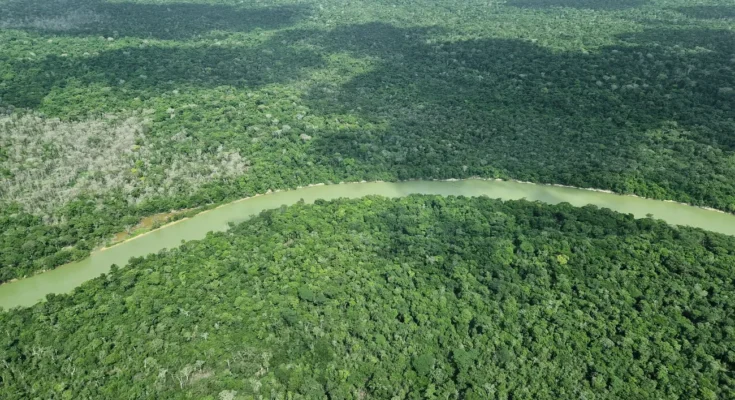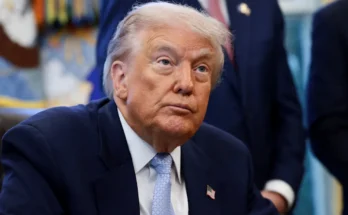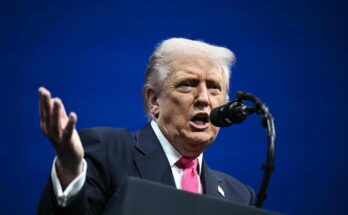Germany is providing one billion euros over ten years for a new fund to protect rainforests. This was announced by Environment Minister Carsten Schneider and Development Minister Reem Alabali Radovan at the World Climate Conference in Belém. “This is about protecting tropical rainforests, the lungs of our world,” explained the two SPD politicians.
I’ve done it before too Brazil Environment Minister Marina Silva reported on Germany’s contribution. Your government launched a tropical forest fund and asked all countries to contribute.
How much money Germany will give is eagerly awaited. During his brief visit to Brazil, Chancellor Friedrich Merz (CDU) only announced “significant numbers” without going into more specifics.
Rainforests play an important role as the “green lungs of the earth” because they trap large amounts of climate-damaging greenhouse gases, cool the climate through water evaporation and are also home to many species of animals and plants. In many places, they are threatened by deforestation to create farmland or pasture or to mine for gold.
Funds are important for the host
For the Brazilian government, a fund called the Tropical Forest Forever Facility (TFFF) is a prestige project that wants to be successful in hosting the UN conference. Countries that conserve their forests should be rewarded according to this new model. Instead, they have to pay fines for every hectare of forest damaged. This will be checked using satellite imagery.
Annually, a fund with a target volume of 125 billion US dollars (around 108 billion euros) could distribute around 4 billion US dollars after a certain start-up period – at least that is what the Brazilian government has in mind. This amount is almost three times the amount of international forestry financial assistance currently available.
Norway has announced that it will pay $3 billion into the fund over ten years. Brazil itself will contribute one billion US dollars, and Indonesia also wants to contribute one billion. Both countries have extensive tropical forests. Apart from Brazil, the founding countries include Colombia, Ghana, the Democratic Republic of the Congo, Indonesia and Malaysia.
The fund is managed by the executive boards of 18 countries – half from tropical forest countries and half from industrialized countries. The World Bank initially acted as trustee. Based on Executive Council guidelines, the funds are transferred to countries with tropical forests; It also provides an additional secretariat.
As many as 70 developing countries can benefit from this
As many as 70 developing countries can benefit from this. Recipients can decide for themselves how exactly the money will be used. However, an important commitment is that 20 percent is provided specifically for indigenous peoples and traditional communities.
According to Brazil, in the first week of November, at the time of its official launch, the initiative had been supported by 53 countries, including 19 potential state investors. According to Brazil’s idea, rich countries should voluntarily pay an initial amount of 25 billion US dollars. The foundation will be used to mobilize an additional $100 billion from the private sector over the next several years. Tropical forest fund managers should invest as much money as possible; projects that use fossil fuels are taboo.
Greenpeace praised Germany’s support
Greenpeace Germany executive board member Martin Kaiser welcomed Germany’s support. This political signal can help make COP30 a success. Minister Schneider was successful in resolving the frustrations surrounding the Chancellor’s lack of concrete commitment.
The Kaiser demanded that Germany’s contribution be subject to clear conditions. The money that should be generated by investment funds for forest protection should not come from investments that harm the climate and the environment. “Direct support for indigenous communities must be guaranteed and protection of intact forests must be more secure.”
© dpa-infocom, dpa:251119-930-315545/3



